Tens of thousands of people took part in rallies and demonstrations held across Germany last Saturday as part of the Federation of German Trade Union’s “hot autumn” protests against cuts to jobs, welfare and social conditions. The demonstrations and rallies have been cynically organised by the DGB as a means for workers to let off steam and disguise the unions’ own close collaboration with the German conservative coalition government.
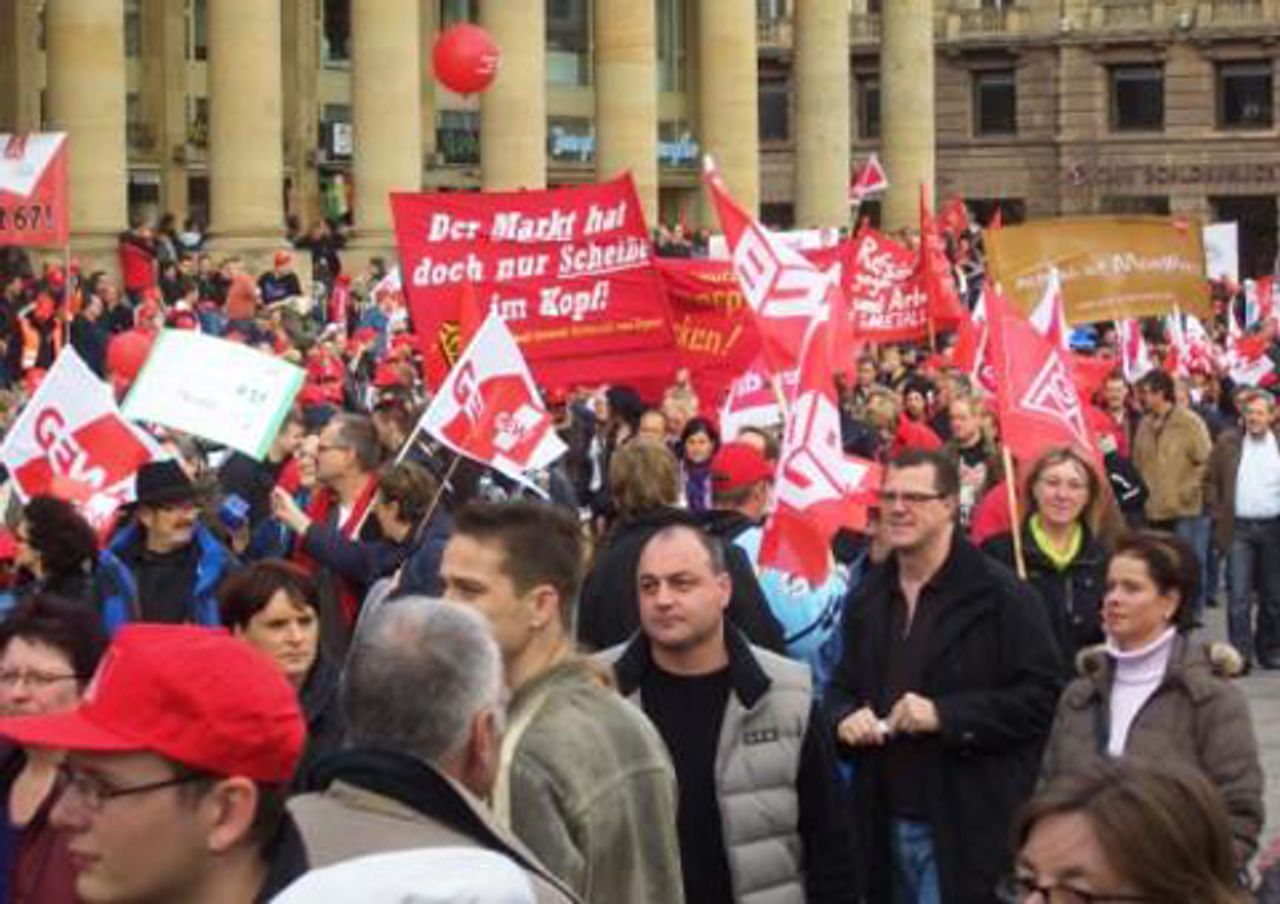 The Stuttgart Schlossplatz
The Stuttgart SchlossplatzAccording to the DGB, 45,000 took part in Stuttgart, 30,000 in Nuremberg, 14,000 in Dortmund and 6,000 in Erfurt.
While using podiums Saturday to criticize government policy, the fact is that the DGB and trade union leaders have played a vital role in the planning and implementation of the social cuts.
At the rally in Stuttgart the chairman of Germany’s biggest industrial trade union, IG Metall, Berthold Huber―who had celebrated his 60th birthday in the German chancellery―denounced the nouveaux riches but made no concrete criticism of the government.
In Dortmund the chairman of the public service trade union Verdi, Frank Bsirske, attacked the government’s austerity measures without mentioning the role played by the chancellor and her party, the Christian Democratic Union. Instead he concentrated his fire on German Foreign Minister Guido Westerwelle and Finance Minister Rainer Brüderle―both members of the free-market Free Democratic Party.
At all of the demonstrations, DGB functionaries unmistakably offered their services to the government to assist in the implementation of social cuts while at the same time avoiding a social and political explosion.
In Stuttgart Huber warned: “If politics is only made on behalf of a small minority, then people will turn away from democracy.” In Dortmund, Bsirske demagogically denounced the social cuts carried out in the past few months―raising of the pension age to 67, welfare cuts, low wages, increased contract work and cuts to health provision―as a “social time bomb, which must be defused”.
At the same time, the protests were used to encourage illusions in the Social Democratic Party, the Greens and the Left Party. In a statement read out in Dortmund, a leading Green Party politician in North Rhine-Westphalia (NRW), Daniela Schneckenburger, praised the DGB and called for a change of federal government corresponding to the change of state government recently carried out in NRW. An SPD-Green coalition tolerated by the Left Party was established earlier this year in North Rhine-Westphalia to carry out budget and spending cuts.
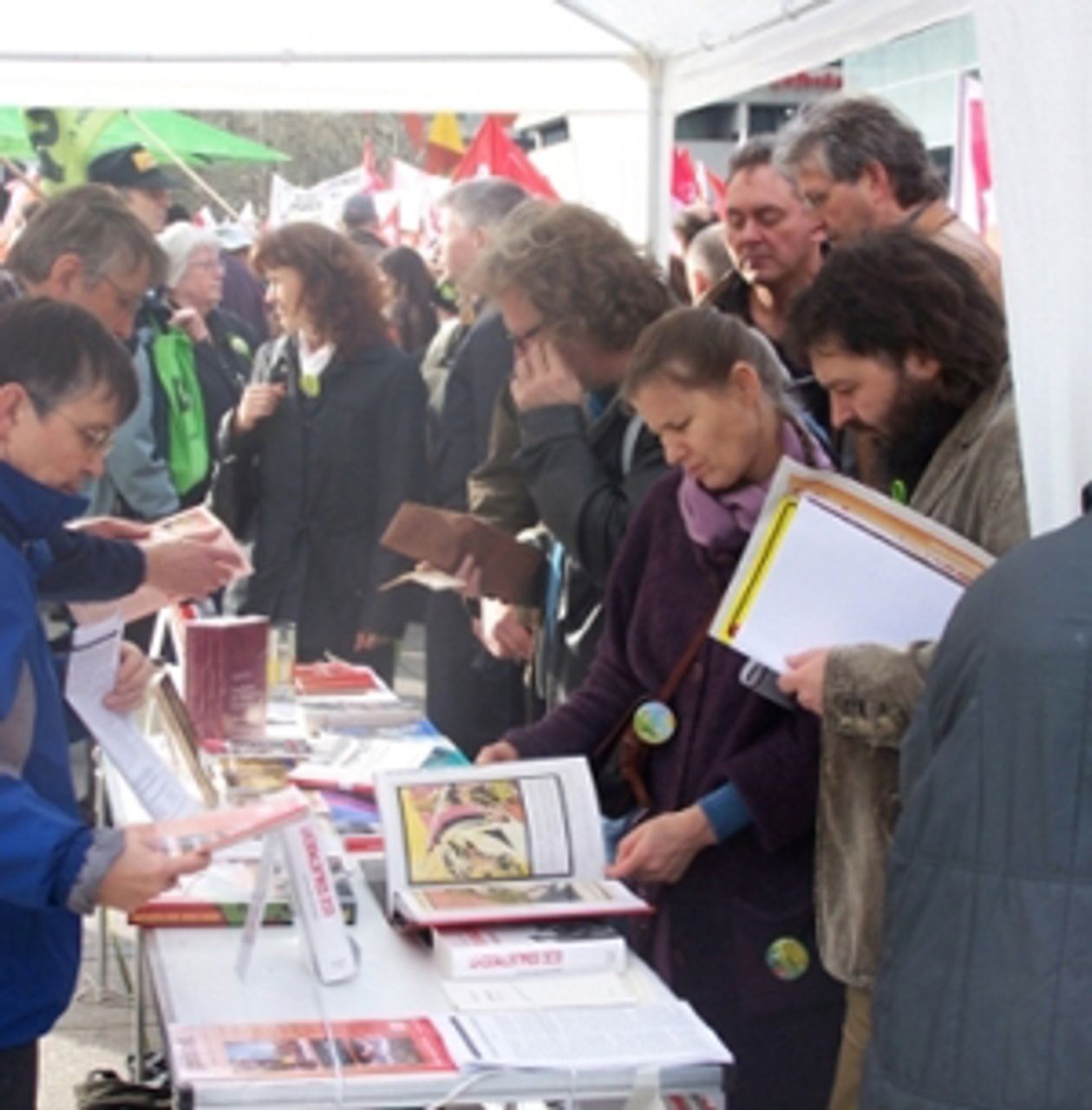 Considerable interest at the PSG literature table
Considerable interest at the PSG literature tableThe demonstrations were largely dominated by trade union bureaucrats and shop stewards. It was clear that the bureaucracy had made no real attempt to encourage a broader mobilization. Also taking part were many representatives of Stalinist and petty bourgeois protest groups who have been in the forefront of promoting illusions in the DGB and its “hot autumn” protests. They even went so far as to put their press and web sites at the disposal of the trade unions.
The Maoist MLPD wrote that the autumn actions come “exactly at the right time”, while the Pabloite Revolutionary Socialist League declared the protests to be a “step in the right direction”. The Socialist Alternative group (SAV)―aligned with the British Militant Tendency―called for “a change of course of the trade unions” and appealed to the trade unions to take part in the regular protests in Stuttgart against the “Stuttgart 21” building project, while featuring IG Metall press releases on its web site.
The PSG set up its own literature tables at the rallies and party members and supporters distributed the leaflet “Trade union federation works hand in glove with German government”, which was received with interest and widely read. WSWS reporters spoke with a number of those in attendance.
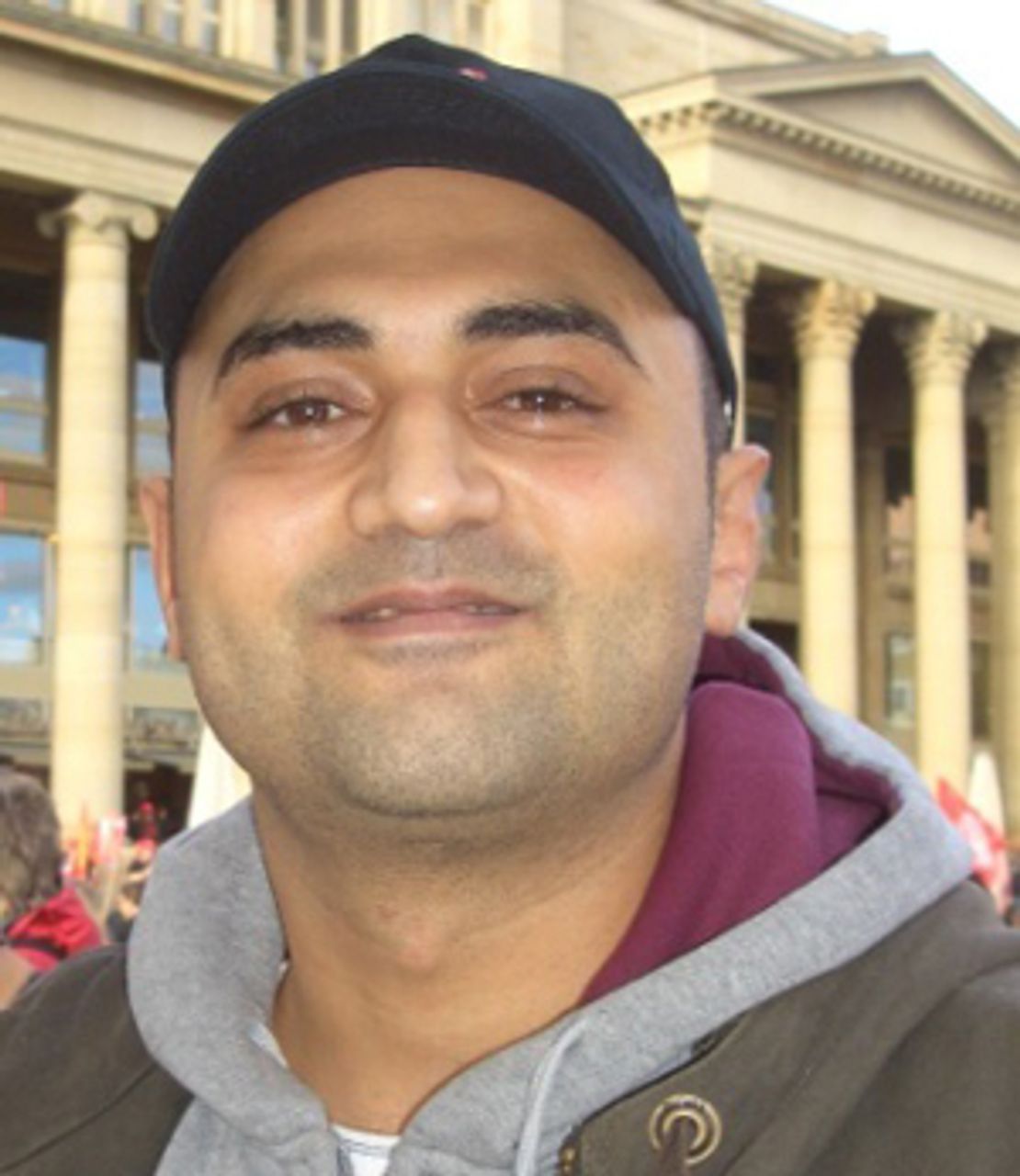 Sakin
SakinSakin is a shop steward at the Bosch automotive supplier. He said he was a member of IG Metall because he “did not want to leave the field open to the right wing”. At the same time, he declared there was considerable unrest in his workplace: “Internally, things are on the boil and my workmates are very dissatisfied.”
“Many radical measures have been decided”, he said. Jobs have been reduced, without the works councils doing anything about it and one department is to be closed completely. In addition a new, completely irregular shift model, the so-called “18 shift”, has been introduced with Sunday included as a normal working day.
According to Sakin: “I have been employed on this shift system since March and for the past six months I no longer have time for my friends or for football. Fathers no longer see their children at the weekend. The fact that such a thing has been accepted is, in my opinion, a betrayal of trust.
“We have swallowed everything for years, and if anyone resists then they are condemned as alleged radicals or socialists, dreamers or crazy people. The IG Metall is not left-wing and there is a big conflict taking place inside the organization”, Sakin continued. “It is the SPD people, sometimes even FDP members, who decide policy. It is unbelievable when one thinks originally we were a workers’ organization.”
Sakin reported that he had already witnessed Berthold Huber at a rally prior to the last federal elections: “At the time Huber promised us a great deal. But then the IG Metall called upon us to vote for the SPD, i.e., the party of Gerhard Schröder, who betrayed our rights as workers.”
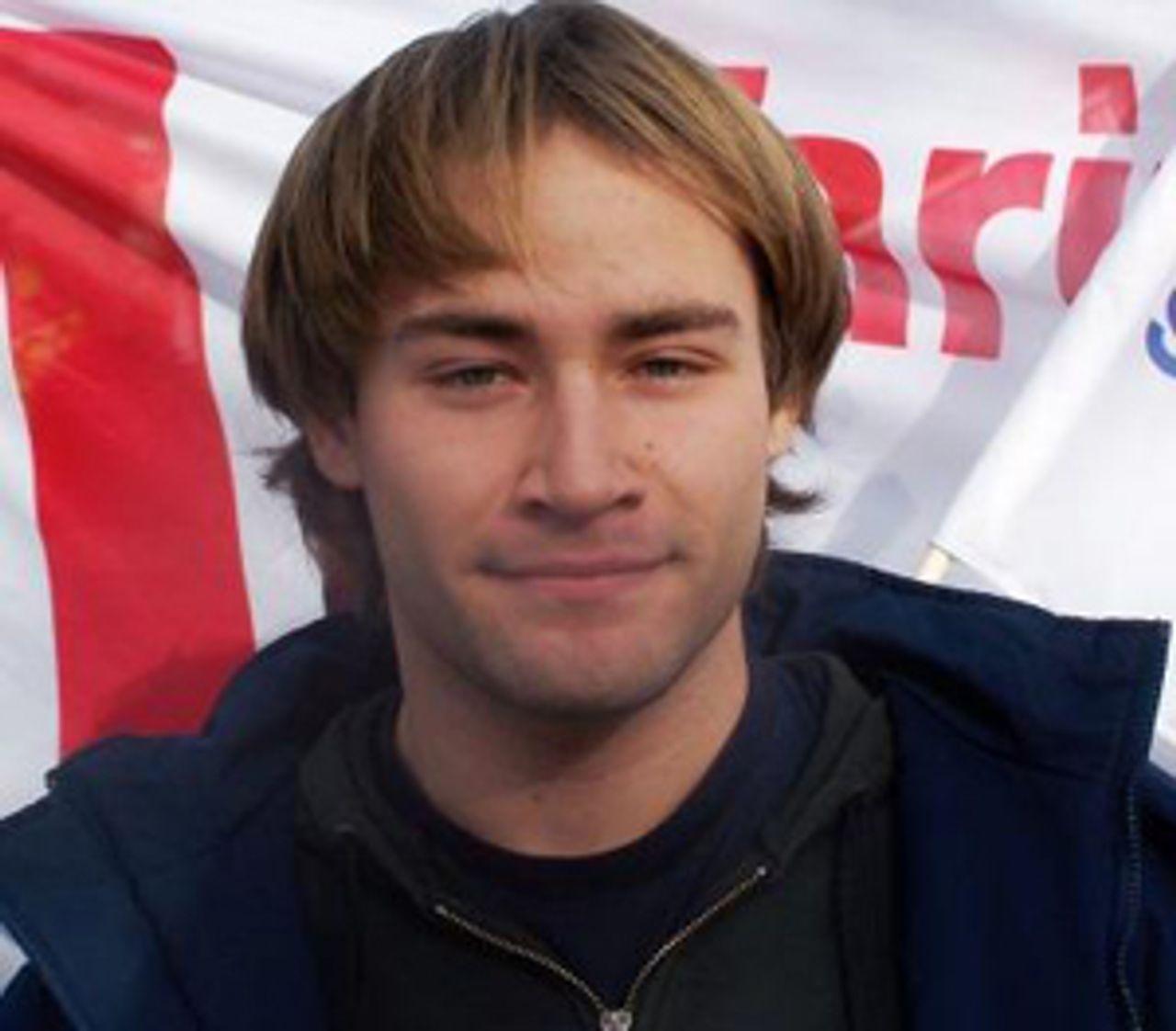 Lukas
LukasLukas is high school student who is involved in the protest activities opposed to the building of the new underground main railway station in the city of Stuttgart. He was attending the rally today to express his anger with the government and to oppose plans to introduce pensions at the age of 67.
Lukas declared that capitalism was at the root of the social attacks. It did not matter which party was in government: “Albeit the SPD, the Greens or the CDU, they are all the same. They all implement cuts. For my part, I have no confidence in the Greens, but the protests against Stuttgart 21 are being used to build up the party and to promote the Greens in the run-up to next year’s state election.”
The solution for Lukas is a complete renewal of the system. Possibly, he adds, one must even abolish it. In his opinion, the DGB had called the demonstrations because “there is a broad mood of opposition in the factories against the government and the cuts. There is enormous pressure building up amongst the rank and file.”
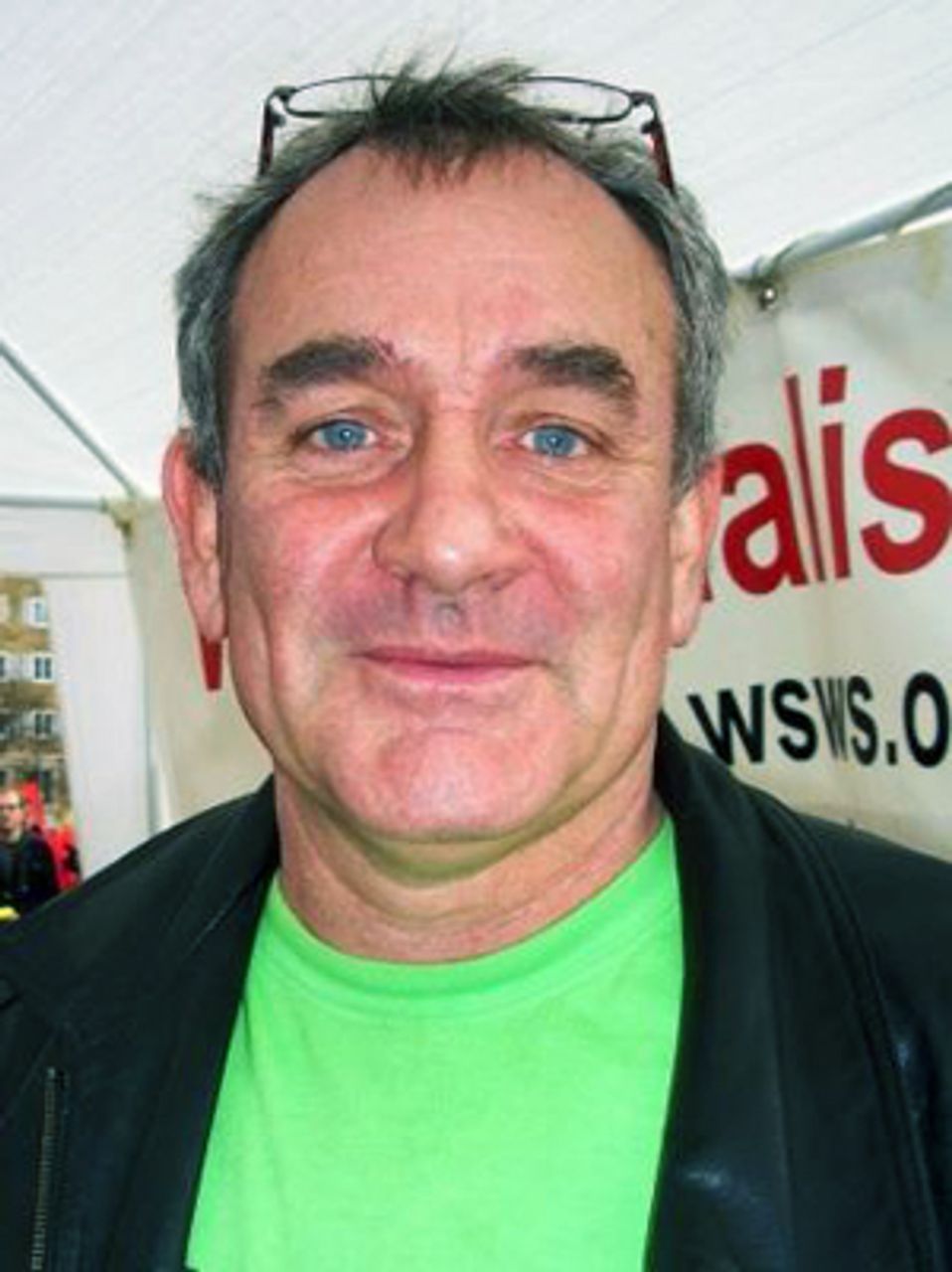 Gerhard
GerhardGerhard has an ambivalent attitude toward the trade unions: “I have joined and rejoined on a number of occasions”, he declared. “Each time I hoped that something would change.”
Gerhard has a great deal of experience with bad working conditions and low wages. Recently he began working in the public service, but previously he had worked for a private company, which paid miserable wages. “They did not adhere to the minimum wage, which is stipulated for this profession, care of the elderly”, he said.
“Nobody was bothered and the press played down the issue, i.e., simply lied about what was going on.” The trade union also did nothing about the illegal wages. Thus Gerhard drew the following conclusion: “The trade union is not doing enough to counter social injustice.”
